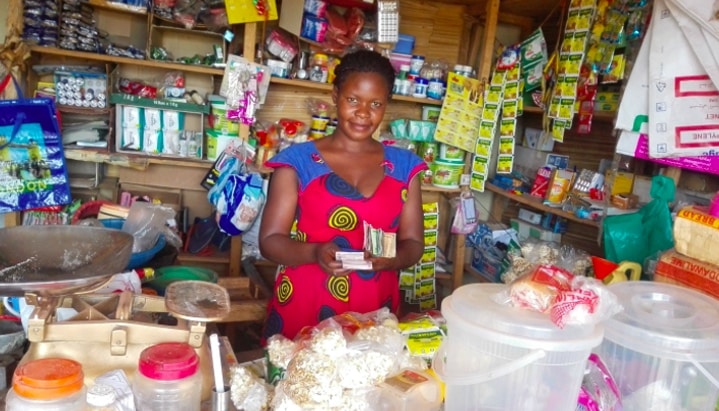After decades of working with women entrepreneurs in Sub-Saharan Africa, I am hopeful that Ivanka Trump’s initiative will deliver change, provided the interventions are designed for lasting results. To effectively meet the program’s ambitious goal of supporting 50 million women in developing countries by 2025, we will need more than the usual generic, short-term approaches to help women prosper in the workforce; succeed as entrepreneurs, and actively participate in the economy.
Undoubtedly, the initiative is well-timed. First, women represent untapped potential. Projections show that empowering women to participate equally in the global economy could result in an additional USD$28 trillion to GDP by 2025.
Yet women’s effective economic participation is limited by several factors. For example, women’s unpaid responsibilities limit the time they spend on paying business activities. While male entrepreneurs are networking or working on their businesses, their female counterparts are ferrying children to and from school, hosting visitors, preparing meals or looking after a sick relative.
In fact, on an average day in sub-Saharan Africa, for every 7 hours that women work, 4 hours are unpaid. For every 6 hours that men work, just over 1 hour is unpaid.
Interventions to overcome this and other gender-biased obstacles that limit women’s effective participation in economic activities will increase the number of successful women entrepreneurs. This means Ivanka will have to actively listen to women entrepreneurs and experts in developing countries. If she is truly interested in promoting lasting change, then this initiative must include solutions that look past individuals to their supporting environment.
For a start, here are a few principles that Trump should follow:
Deepen knowledge on women entrepreneurship
The women entrepreneur landscape is complex and not yet fully understood. Indeed, women’s entrepreneurship research is referred to as being in its “adolescent stage” with most of the studies conducted in developed economies. In other words, our knowledge of women’s entrepreneurship is limited and largely undocumented, particularly in the developing world.
From experience, however, we practitioners know that even within a single country, we cannot generalize about the needs of women entrepreneurs. So many factors come into play including location; enterprise age, size, and sector; owner’s education level; culture, traditions and more. While the Global Entrepreneurship Monitor provides an entrepreneurship framework that categorizes entrepreneurial activity by phase, impact and type; this is just a starting point. We still do not have a way to capture the variables that differentiate between the growth needs of entrepreneurs like Jane Benuza a woman cross border trader at the Uganda / Tanzania border from those of Bilhah Maina a honey processor in Kenya and Francisca Masika, a tour operator in Tanzania.
Ivanka’s initiative could make an unprecedented and meaningful contribution to women’s entrepreneurship if is invested in regional and national studies to deepen our understanding of women entrepreneur categories, which, in turn, will inform effective future program design for years to come.
Promote the transition of undocumented enterprises to the formal economy
In Sub-Saharan Africa, the informal sector employs 80 percent of the labour force. In Uganda alone, the sector accounts for 62 percent of employed women. Yet, those who operate in the informal sector lack access to opportunities. Institutional requirements for legal proof of business registration bar them from supplying goods or services to governments, multi-nationals and other large purchasers, obtaining credit and participating in training programs. Furthermore, they lack legal protection and are frequently preyed upon by those who exploit their often, unfounded fear of being reported to the authorities.
By creating pathways for individuals and groups of individuals to formalize their businesses without facing any immediate negative consequences, the initiative could help make informal business owners visible and eligible to participate in activities currently out of their reach. Formally recognized businesses can be tracked, taxed and their economic contribution quantified.
Ivanka Trump’s initiative could therefore support, among other interventions, advocacy for tax reform and provide training and support for the accurate and timely completion of tax returns for newly formal entities.
Strengthen local business associations
Finally, while we know that local business associations in East Africa are typically weak on governance and structures, have limited human and financial resources and often lack technical skills, they remain the most suitable partners if we are seeking sustainable solutions.
By equipping regional and national associations of women business owners, women traders and women professionals to effectively fulfil their mandates, Trump’s initiative could leave behind structures for the continued support of women entrepreneurs, well beyond the life of the programme.
And for African women entrepreneurs, that would be a legacy of hope that will extend well beyond the 2025 projected US$28 trillion target.
Dorothy Tuma chairs the East African Women in Business Platform, which represents the views of 20,000 women business owners in six partner states. She has over 15 years of experience in enterprise development and woman’s entrepreneurship.










